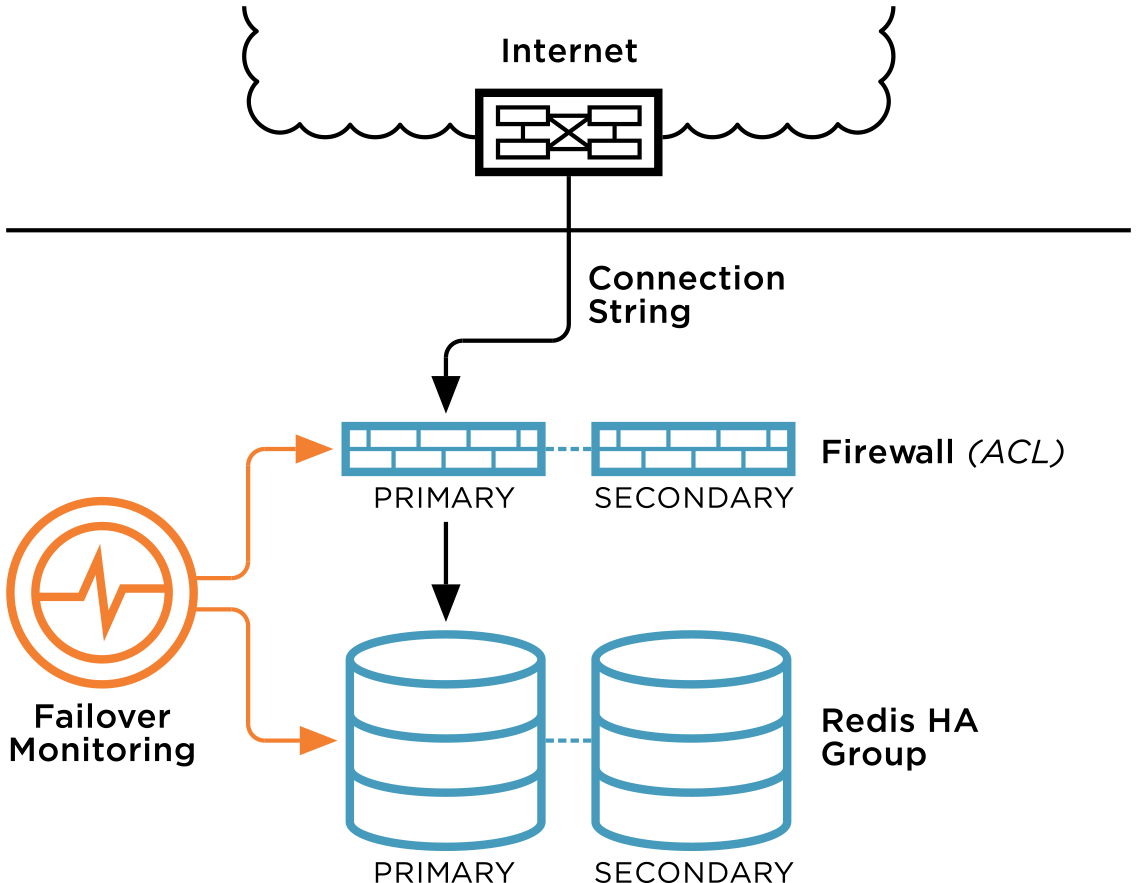ObjectRocket Redis FAQ¶
What is ObjectRocket Redis?¶
ObjectRocket Redis simplifies app development by offering preconfigured, high performance, highly available Redis instances built on the same hardware stack that makes the MongoDB offering successful. Simple provisioning and administration, along with the ability to scale on demand make it easy for developers to integrate the ObjectRocket Redis platform into an application stack. ObjectRocket Redis is available for Amazon Web Services (AWS) and the Rackspace Dedicated Cloud.
Is ObjectRocket Redis highly available?¶
Yes. The ObjectRocket Redis instance features seamless automatic failover of the Redis master to a slave in the event of a master node failure.
What plans and sizes do you offer?¶
Plan sizes vary between Redis for AWS and Redis for the Rackspace Dedicated Cloud.
Redis for AWS |
Redis for the Rackspace Dedicated Cloud |
|---|---|
0.5 GB |
500 MB |
1 GB |
1 GB |
1.5 GB |
2.5 GB |
2 GB |
5 GB |
2.5 GB |
10 GB |
3 GB |
20 GB |
5 GB |
50 GB (Contact Support.) |
10 GB |
75 GB (Contact Support.) |
20 GB |
100 GB (Contact Support.) |
All plans reflect useable memory.
If you require something larger, contact the ObjectRocket Sales team for help.
Can I use a single Redis instance for multiple purposes?¶
Yes. As long as the app doesn’t use the same keys in different areas. The important thing is to avoid data collision caused by trying to use the same key for different purposes.
What is the difference between the two ObjectRocket Redis offerings?¶
ObjectRocket offers Redis for the Rackspace Dedicated Cloud and Redis for Amazon Web Services (AWS). These options let customers choose their preferred cloud provider to reduce latency.
- Redis for the Rackspace Dedicated Cloud offers:
Review the ObjectRocket dedicated platform supported versions table for a list of supported Redis versions.
Two nodes (one master and one backup)
Three Sentinel nodes shared among different clusters
- Redis for AWS and GCP offers:
Review the ObjectRocket cloud platform supported versions table for a list of supported Redis versions.
Three nodes (one master and two backups)
Three dedicated Sentinel nodes for each cluster
What kind of support should I expect?¶
ObjectRocket for Redis includes Fanatical Support|reg| for every day of the year. ObjectRocket monitors and fixes issues with customer instances or infrastructure, assists with data migrations, fine-tunes Redis configurations, and helps with any other issues you might experience. ObjectRocket engineers also offer architecture advice and data structure best practices to help you figure out how to best leverage Redis in your app.
Can you help migrate my data?¶
ObjectRocket offers migration help to customers moving to a 20 GB or larger instance, but don’t hesitate to reach out to the Support team with any migration questions.
What kind of software does the ObjectRocket Redis offering use?¶
The Redis offering uses Redis 3 with Sentinel for high availability. All instances are highly available, and all instances persist to disk.
How is the system architecture designed?¶
This diagram shows the design of the system architecture.

The ObjectRocket Redis environment utilizes node clusters and Sentinels. One Redis node is master, and the other nodes are slaves.
All services are containerized, which provides guaranteed resources (memory, CPU, disk I/O), prevents “noisy-neighbor” problems, and eliminates the performance bottlenecks of traditional hardware virtualization.
The service runs on performance-optimized infrastructure to make Redis run as fast as possible.
Users connecting from AWS automatically use dedicated 10 Gigabit AWS Direct Connect circuits for high throughput, low latency connectivity to ObjectRocket for Redis.
What version of Redis does ObjectRocket support?¶
Redis for Rackspace Dedicated Cloud supports Redis 3 and 7.
Redis for AWS and GCP supports Redis 4.0.14, 5.0.8, and 6.0.5.
Contact the Support team for help with other versions.
Do you support Redis Cluster?¶
No, we don’t feel it’s stable enough for production today, but it’s on the roadmap.
Do you offer SSL with Redis?¶
Yes, when you create a Redis instance, you receive an SSL string that you can use to connect. You might need to configure Stunnel to handle this because Redis doesn’t have native SSL support. Visit the Redis Stunnel page for more information.
How much does ObjectRocket for Redis cost per month?¶
See the pricing page for details.
How does billing work?¶
See the Billing FAQ.
How do I connect to my Redis instance?¶
Start the redis-cli with the hostname, port, and password:
redis-cli -h my-host -p 1234 -a mypassword
If you have any other questions, don’t hesitate to reach out to the Support team!